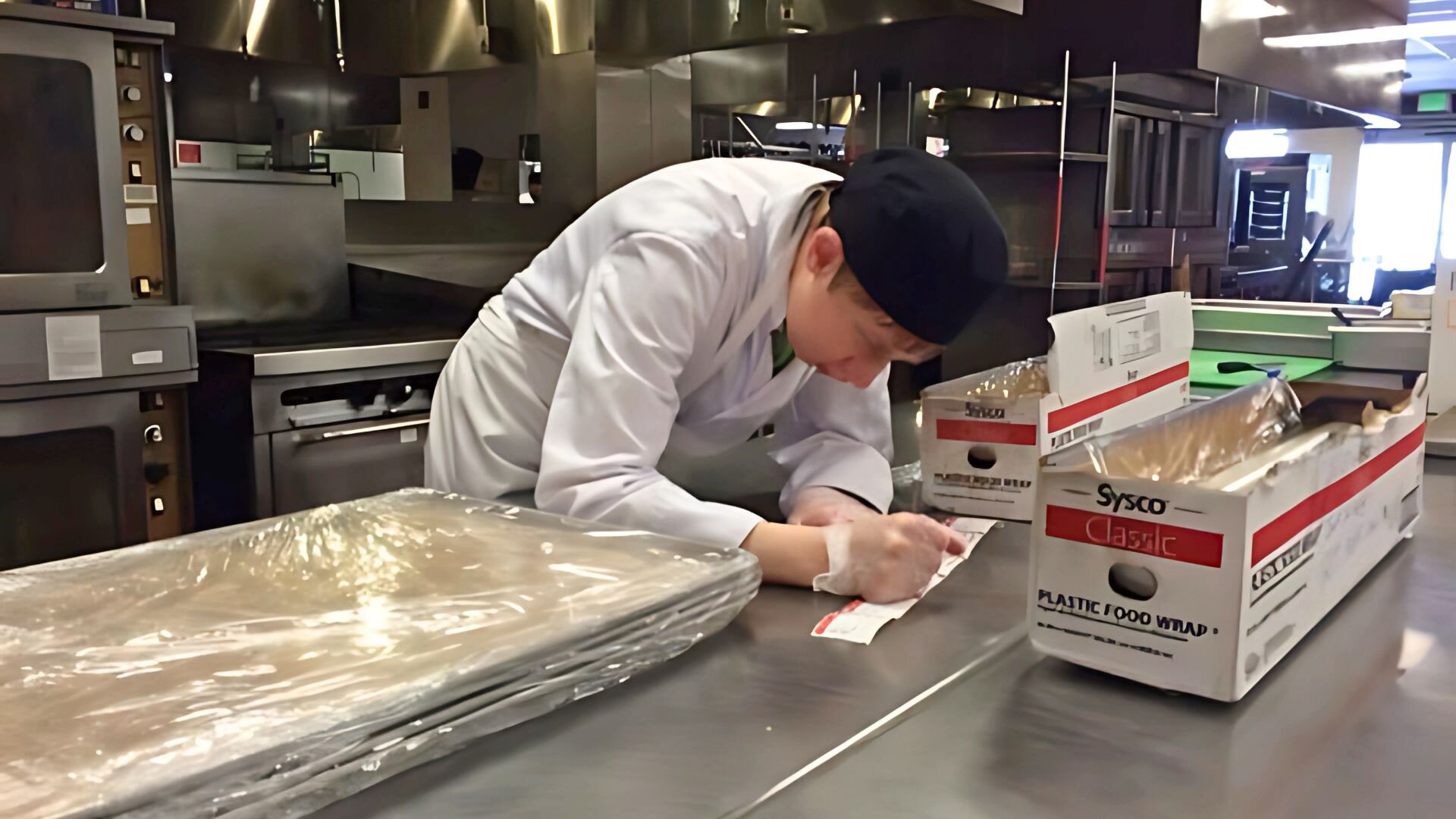A young man with a dream to work in a professional kitchen is given the chance he needs … thanks to a chef who asked him the right questions. It’s a perfect example of an important tactic when communicating with people of any ability.
My son Andrew, a young man with autism, is infatuated with cooking knives—any knife a professional chef might use in a restaurant, like a bird’s-beak paring knife, a boning knife, or the ever-versatile Chef’s knife. He researches each brand, reads the reviews, and practices using them in our kitchen. So, when he met with a job coach for the first time, I wasn’t surprised to hear that he wanted to work in a restaurant.
While the job coach helped Andrew with his resume and looked for job opportunities, my husband and I coached him on greeting potential employers and saying the right things in an interview. Andrew seemed confident. I was a wreck.
The day came for Andrew’s first interview. A local restaurant was looking for someone to restock basic supplies and clean up after the lunchtime rush.
“What makes you qualified for this job?” the head chef asked.
Andrew shrugged. “I don’t know.”
“Do you have any experience working in the food industry?”
“No, but I watch YouTube and cooking shows,” Andrew said, tugging at the starched and ironed dress shirt I made him wear.
This was not going well—even the job coach looked skeptical. But then the chef asked him another question.
“Andrew, do you have any special talents you’d like to share with me?”
“I have mad knife skills!” Andrew said, miming chopping motions with his hands.
I was sure he’d just killed the interview, but the chef took him to the kitchen and handed him a Chef’s knife.
Andrew eagerly recited the list of safety requirements for using the knife, carefully chopped and sliced vegetables, and demonstrated how to clean the blade properly.
At the end of the interview, the chef said, “You don’t want to clean and restock supplies, do you?”
Andrew shook his head and looked at his feet. “No.”
The chef looked thoughtful. “What would you like to do?”
“I want to have a food truck someday and wear one of those chef hats that make you look official,” Andrew said.
Andrew got the job … and the hat. He began by restocking kitchen supplies and quickly became an assistant prep chef, working in a busy and demanding kitchen where he mastered his skills. The employer was willing to take a chance on my son, a young man with limited social and language skills. He shared Andrew’s passion for cooking and saw past my son’s awkward interactions to a capable young man who was willing to learn and succeed in a job.
The chef eliminated one of the big barriers for people with disabilities like my son. He spoke to my son directly, listened to his answers, and respected what he had to say. And that made the difference.
In the language of IDD, addressing the person directly is part of how we “presume competence.” There’s a great explanation of this idea in The Autism Site’s blog.
“In a sentence, presuming competence means to assume an autistic person can think, learn, and understand—even if you don’t see any tangible evidence that such is the case. It’s assuming they are not inherently incapable; they just need the right supports and systems to help them succeed.”
While the article specifically references autism, the definition applies to any disability. As the author of The Autism Site’s Blog notes, this isn’t just wishful thinking or willful ignorance of a person’s disabilities. Instead, it’s about “giving someone a chance—and helping them take it in any way you can.”
It’s exactly what the chef achieved with Andrew … and it was exactly what Andrew needed to move forward in a career that lights him up.
Kristin Jarvis Adams is the author of The Chicken Who Saved Us: The Remarkable Story of Andrew and Frightful. She can be found at www.kristinjarvisadams.com or on Facebook at Kristin Jarvis Adams, Author. Read our review of The Chicken Who Saved Us in this issue of The Journey. Photo of Andrew and his mad knife skills courtesy of Kristin Jarvis Adams.

